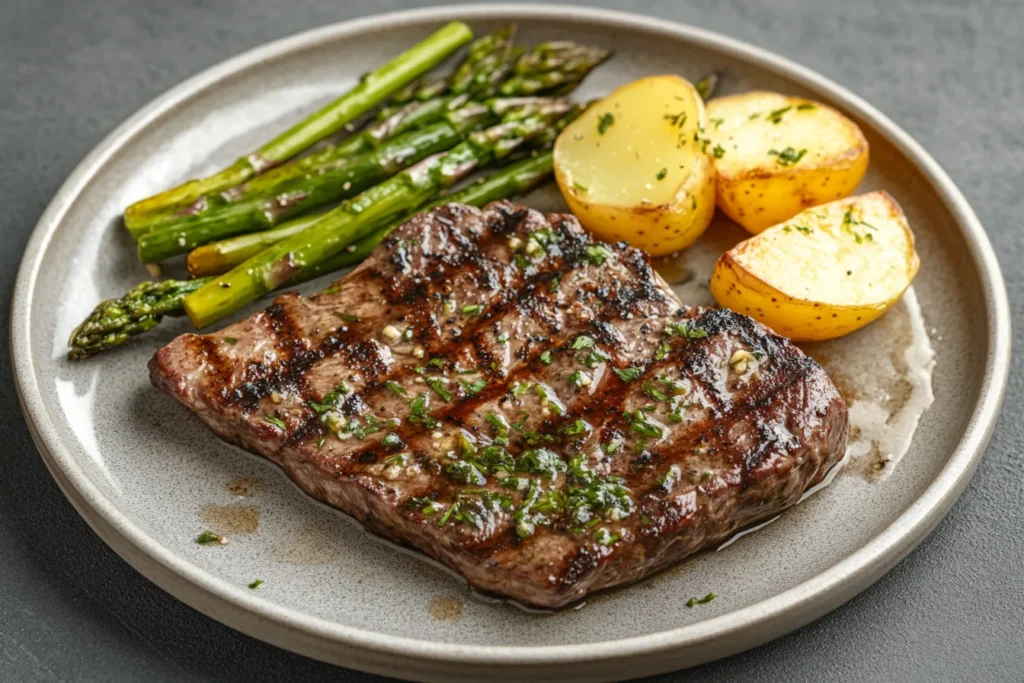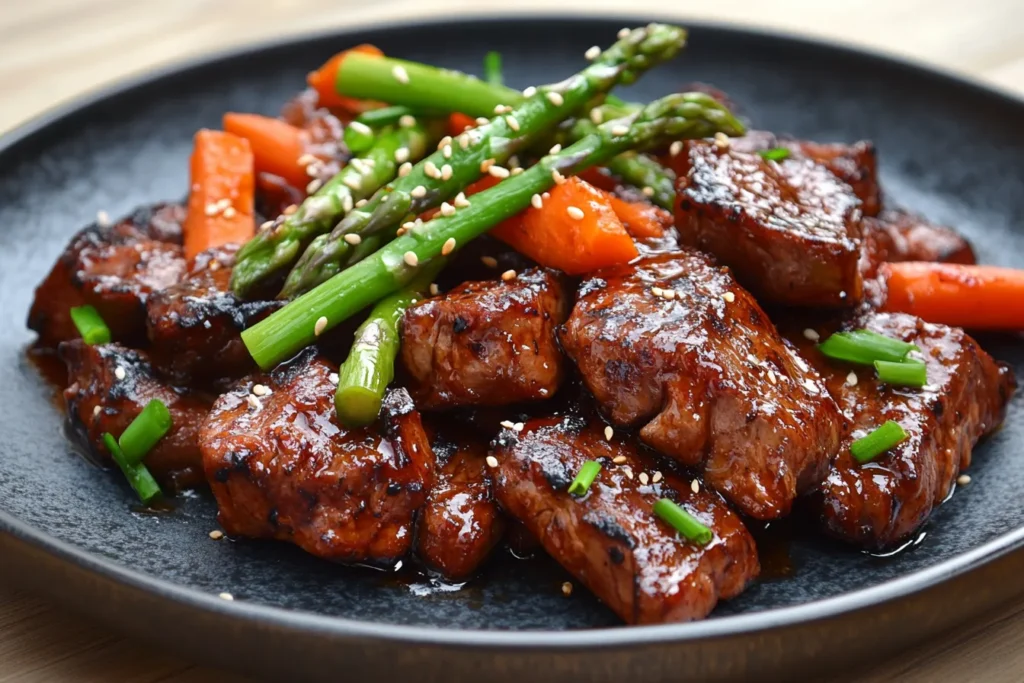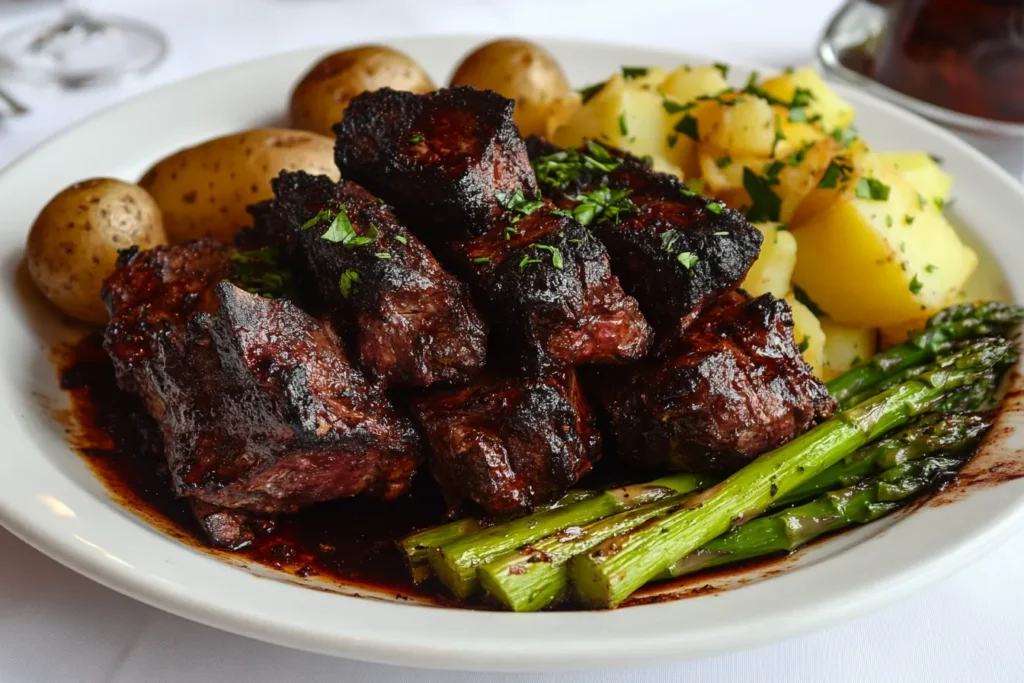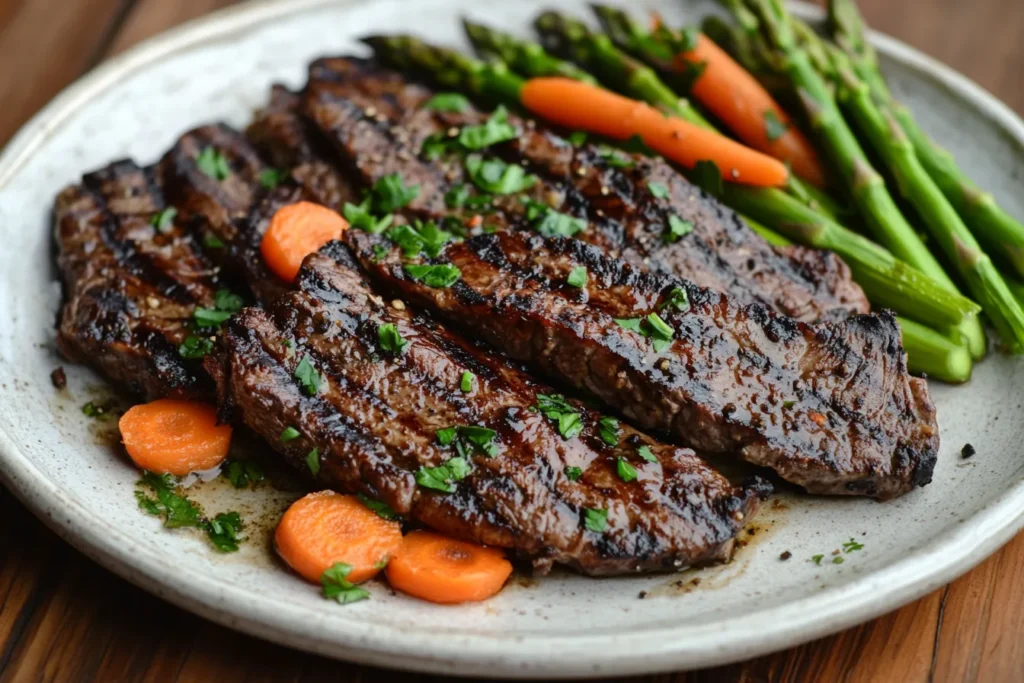Have you ever wondered why some marinades take your dishes to the next level while others fall flat? The secret lies in balancing the right ingredients. If you’ve ever been stuck staring at your pantry, unsure how to create a marinade that’s flavorful, tenderizing, and just plain delicious, you’re not alone. The good news? It’s much simpler than it seems! A great marinade only needs three main ingredients to work its magic. I’ve been there too, overthinking every little detail when all I needed was to stick to the basics. Once I figured out this simple formula, marinades became my go-to for effortless, flavorful meals. Let’s break it down so you can master the art of marinating in no time!
Introduction to Marination
Marination is the cornerstone of flavor-packed cooking. It transforms simple ingredients into extraordinary dishes by infusing them with taste, tenderness, and complexity. Whether you’re preparing a savory steak, flavorful chicken, or vibrant vegetables, marination ensures every bite is unforgettable. But, what exactly makes a great marinade? To create the perfect mix, you need to understand its three essential components: acid, fat, and seasoning.
As you delve into the art of marinating, you’ll discover how these three main ingredients work together to elevate your cooking. Along the way, you’ll also learn techniques to avoid common mistakes, ensuring your marinades are always balanced and delicious. Check out more recipes here.
Importance of Marinating in Cooking
Marination is essential because it does more than just flavor food. It enhances the texture, locks in moisture, and even helps preserve the food. For example, marinating tougher cuts of meat helps break down their fibers, resulting in a juicier and more tender texture. On the other hand, for vegetables or tofu, it adds depth and complexity to otherwise plain ingredients.
Moreover, marination is incredibly versatile. You can use it for grilling, roasting, sautéing, or even slow cooking. The flexibility of marination allows cooks to experiment with flavors from various cuisines, like Asian soy-ginger blends or Mediterranean lemon-herb mixes. As a result, it’s not just a step in cooking—it’s a game changer. Check out more recipes here.
Basic Science Behind Marination
Understanding the science of marination ultimately makes it much easier to achieve better and more consistent results. As food rests in a marinade, the ingredients naturally interact with proteins, fats, and water molecules. To explain this further, here’s how each component contributes:
- First and foremost, acid breaks down tough fibers, which helps in tenderizing proteins.
- In addition, fat acts as a carrier, ensuring that flavors penetrate more evenly throughout the food.
- Finally, seasoning enhances taste and creates the signature aroma that defines a well-marinated dish.
Together, these three essential components work in harmony to create a dynamic mixture that transforms your food over time. For meats, marinades typically seep into the outer layers, infusing flavor gradually. On the other hand, with vegetables, their porous surfaces allow flavors to absorb much more quickly. Therefore, knowing this process helps you adjust marination times and techniques to suit each type of ingredient effectively.
Understanding the Three Main Ingredients

To build the perfect marinade, you need to balance acid, fat, and seasoning. Each plays a unique role:
- Acid: Adds brightness and tenderizes proteins.
- Fat: Carries and locks in flavors.
- Seasoning: Enhances overall taste with bold or subtle flavors.
When combined thoughtfully, these ingredients transform your dish. For instance, an olive oil-based marinade with lemon juice and garlic offers a Mediterranean vibe, while soy sauce, sesame oil, and ginger give you an Asian-inspired twist.
Acidic Component in Marination
The acidic element is essential because it breaks down proteins and tenderizes food. This process makes tougher cuts of meat easier to chew and gives seafood or vegetables a tangy flavor. Common acidic ingredients include:
- Citrus juices: Lemon, lime, and orange are versatile and fresh.
- Vinegar: Balsamic, apple cider, and rice vinegar provide diverse tangy profiles.
- Yogurt: Perfect for creamy marinades, especially in Indian or Mediterranean dishes.
While acids are effective, it’s important not to overuse them. Too much acidity can “cook” proteins prematurely, especially with seafood. For balance, pair acidic ingredients with oils and seasonings.
Fat Component in Marination
Fat is the secret weapon of any marinade. It doesn’t just add richness; it also ensures flavors stick to the surface of your ingredients. Oils create a barrier, locking in moisture and preventing food from drying out during cooking. Popular fat-based ingredients include:
- Olive oil: A classic choice for Mediterranean dishes.
- Sesame oil: Ideal for Asian marinades with bold, nutty undertones.
- Coconut milk: Adds creaminess and a tropical flair.
Besides flavor, fat also helps distribute heat evenly during cooking. For best results, mix oil with acidic components to create a balanced marinade that clings to every surface.
Seasoning Component in Marination
Seasoning truly ties everything together, serving as the final touch that elevates a marinade to perfection. Without it, even the best mix of acid and fat would end up tasting bland and uninspiring. In particular, seasonings play a crucial role by amplifying flavors and adding much-needed complexity to the dish. To illustrate, here are some popular seasoning options to consider:
- First of all, herbs such as fresh parsley, cilantro, rosemary, and thyme add vibrant, aromatic notes.
- Additionally, spices like paprika, cumin, black pepper, and chili flakes introduce depth and heat.
- Moreover, sweeteners such as honey, maple syrup, or brown sugar provide a subtle hint of sweetness to balance the flavors.
That said, it’s important to experiment with these elements to discover your favorite combinations. For example, if you’re crafting an Asian-inspired marinade, you might want to include soy sauce, garlic, and ginger to capture bold, umami-rich flavors. Conversely, for a smoky barbecue twist, ingredients like smoked paprika, cayenne pepper, and molasses would be a better fit.
Ultimately, with the right balance of seasonings, your marinade can achieve an unforgettable flavor profile tailored to your preferences.
Balancing the Three Components
Getting the balance right is key to a great marinade. Here are some tips:
- Use a 2:1:1 ratio of oil to acid to seasoning as a starting point.
- Avoid overwhelming flavors by sticking to a few core ingredients.
- Sample the marinade before using it on your food.
For instance, if the marinade tastes too sharp, add more oil or a touch of sweetness. If it’s too bland, boost it with a pinch of salt or extra spices. The goal is to create harmony between the three components.
Variations Based on Cuisines
Marinades beautifully reflect the essence and character of different cuisines, showcasing the diversity of flavors from around the world. For instance, each cuisine uses distinct ingredients to create marinades that tell a unique story. Let’s take a closer look at some examples:
- To begin with, Asian marinades often include soy sauce, ginger, sesame oil, and rice vinegar. Together, these ingredients create a balance of savory, tangy, and nutty flavors that pair perfectly with meats, seafood, or tofu.
- On the other hand, Mediterranean marinades focus on olive oil, lemon juice, garlic, and oregano. This combination not only enhances the natural flavors but also adds a refreshing and aromatic quality, perfect for grilling or roasting.
- Similarly, Mexican marinades combine lime juice, cumin, chili powder, and cilantro. With these ingredients working together, the result is a bold, zesty marinade that’s ideal for tacos, fajitas, or grilled vegetables.
In conclusion, each cuisine brings its own unique twist to marinades, allowing you to explore endless flavor possibilities and expand your culinary horizons. So, why not experiment and discover a new favorite today?
Common Mistakes in Marinating
To get the most out of your marinade, avoid these common pitfalls:
- Over-marinating: Too much time in a marinade can make proteins mushy.
- Skipping balance: Leaving out essential components results in bland or overpowering flavors.
- Using too much salt: Over-salting can dry out your ingredients.
Instead, stick to the basics and adjust the recipe as needed. With practice, you’ll master the art of marination.
Step-by-Step Guide to Making a Perfect Marinade

Crafting the perfect marinade requires a few straightforward steps. With the right approach, you can ensure every dish is bursting with flavor and texture. Here’s a simple guide:
- Choose Your Ingredients:
- Select the three essential components: acid, fat, and seasoning.
- Pair these with your main ingredient, such as chicken, fish, vegetables, or tofu.
- Measure and Combine:
- Stick to a general ratio of 2 parts oil to 1 part acid and seasoning to taste.
- Use a mixing bowl or jar for easy whisking.
- Marinate Smartly:
- Put the food into a resealable bag or a shallow dish.
- Pour the marinade evenly, ensuring all surfaces are coated.
- Time It Right:
- Marinate according to the type of food (see Section 12 for timing).
- Refrigerate while marinating to keep it fresh and safe.
This step-by-step approach ensures you get consistent results every time you marinate.
How Long Should You Marinate?
Timing is everything when it comes to marination. Marinating for too long can ruin the texture, while too little time might not allow the flavors to infuse. Here’s a quick guide:
- Vegetables: 15–30 minutes for maximum absorption.
- Chicken: 2–6 hours for optimal tenderness.
- Beef: 4–24 hours, depending on the cut.
- Fish: 15–30 minutes to avoid breaking down the delicate flesh.
- Tofu: 30 minutes to 2 hours for deep flavor penetration.
Keep in mind that tougher cuts of meat, like brisket, require longer marination to break down connective tissues, while delicate proteins like fish need less time.
Marinating for Different Cooking Techniques
The way you plan to cook your dish also influences the marinade’s composition. Let’s break it down by cooking technique:
- Grilling: Use oil-based marinades with higher acidity to create a caramelized crust.
- Roasting: Focus on herb-infused marinades for bold flavors that permeate during slow cooking.
- Sautéing: Go for quick marinades with strong seasonings since the cooking time is shorter.
For each method, pat the food dry before cooking to prevent excess moisture from steaming the ingredients instead of browning them.
Vegetarian and Vegan Marination Techniques
Marinating isn’t just for meat! Vegetarian and vegan ingredients benefit from marinades just as much, if not more:
- For Tofu: Press the tofu to remove excess water, then marinate it in a mix of soy sauce, sesame oil, and rice vinegar for at least 30 minutes.
- For Vegetables: Use olive oil, balsamic vinegar, garlic, and fresh herbs to enhance the natural sweetness of veggies before grilling or roasting.
These techniques add depth to plant-based dishes, making them just as flavorful as their meaty counterparts.
Storage Tips for Marinades
Proper storage is critical for keeping your marinades safe and effective. Here are a few tips:
- Refrigerate Marinades: Always store marinades in the fridge to prevent bacterial growth.
- Shelf Life: Fresh marinades with herbs last 2–3 days in the fridge. Marinades with citrus should be used within 24 hours.
- Reuse: Avoid reusing marinades from raw proteins unless you boil them first to eliminate any bacteria.
By following these storage tips, you can ensure your marinades are safe and flavorful.
Enhancing Nutrition Through Marinades
Marinades are a great way to boost the nutritional value of your meals. Here’s how:
- Use Healthy Fats: Opt for olive oil or avocado oil instead of saturated fats.
- Add Superfoods: Include garlic, turmeric, or ginger for their anti-inflammatory properties.
- Cut Down on Sugar: Replace processed sugars with natural sweeteners like honey or maple syrup.
These small changes can make your marinades both delicious and health-conscious.
DIY Marinade Recipes
Creating your own marinades is simple and fun. Here are two quick recipes to try:
- Classic Lemon Herb Marinade:
- 1/4 cup olive oil
- Juice of 1 lemon
- 2 cloves garlic, minced
- 1 tsp oregano
- Salt and pepper to taste
- Asian Soy-Ginger Marinade:
- 1/4 cup soy sauce
- 2 tbsp sesame oil
- 1 tbsp honey
- 1 tsp grated ginger
- 1 clove garlic, minced
Mix the ingredients and adjust to taste. These recipes work for chicken, fish, vegetables, or tofu!
How Marinades Improve Meat Quality

Marinades work wonders on meat by enhancing both flavor and texture. Here’s why:
- Tenderization: Acids break down muscle fibers, making meat tender.
- Moisture Retention: Fat locks in juices, preventing dryness.
- Flavor Infusion: Seasonings penetrate the outer layers for deeper taste.
For dry cuts, like chicken breasts or lean steaks, marinades add much-needed moisture and richness.
Kitchen Tools for Making Marinades
Having the right tools makes marinating easier and more effective. Here are some essentials:
- Mixing Bowls: For combining ingredients evenly.
- Whisks and Measuring Tools: To ensure accuracy in proportions.
- Zip-Top Bags or Containers: For easy storage and coating.
These tools simplify the process and guarantee better results every time.
Marination for Dietary Preferences
Marination can be tailored to suit various dietary preferences, allowing everyone to enjoy flavorful meals. Here’s how to adjust marinades for specific diets:
- Low-Sodium Diets:
Replace soy sauce with low-sodium tamari or coconut aminos. Use fresh herbs and citrus for flavor instead of excess salt. - Keto or Low-Carb:
Focus on healthy fats like avocado oil and minimize sugar. Sweeten with stevia or erythritol if necessary. - Gluten-Free:
Ensure all ingredients, including soy sauce, are certified gluten-free. Use tamari as a safe alternative.
By keeping dietary needs in mind, marinades can cater to everyone without sacrificing taste.
Creative Marinade Flavor Profiles
There are endless ways to get creative with marinades. Below are some exciting flavor profiles to try:
- Sweet and Spicy:
Combine honey, chili flakes, lime juice, and soy sauce for a bold, sweet heat. - Herbaceous and Fresh:
Blend parsley, cilantro, mint, lemon zest, and olive oil for a vibrant Mediterranean touch. - Smoky BBQ:
Mix smoked paprika, molasses, apple cider vinegar, and garlic for a rich, smoky finish.
These unique combinations offer fresh inspiration for experimenting in the kitchen.
Marination for Meal Prep
Marinades are a meal prep powerhouse. They make it easy to infuse flavor into your meals without extra effort on cooking day. Here’s how to incorporate marinades into your routine:
- Prepare Marinades in Advance:
Store them in airtight containers in the fridge for up to a week. - Marinate Proteins and Freeze:
Add raw chicken, beef, or tofu to freezer bags with marinades and freeze for up to three months. - Batch Cook with Marinades:
Grill or roast marinated proteins and use them in salads, sandwiches, or bowls throughout the week.
With marinades, meal prep becomes faster and tastier.
Using Marinades Beyond Meats
Marinades aren’t just for proteins; they’re equally amazing for other foods. Here’s how to use them creatively:
- Grains:
Toss cooked quinoa or rice with a light vinaigrette-style marinade for extra flavor. - Pasta Salads:
Marinate vegetables before grilling and add them to pasta dishes for bold flavor. - Soups and Stews:
Use marinated ingredients as a base for soups to intensify the taste.
By expanding the scope of marinades, you can elevate more dishes with ease.
How Marinades Reduce Food Waste
Marinating is a great way to reduce waste in your kitchen. When you marinate leftover ingredients, they get a new life:
- Revive Old Vegetables:
Marinate slightly wilted veggies before roasting to enhance their texture and flavor. - Save Tougher Cuts of Meat:
Use acidic marinades to tenderize and salvage less desirable cuts. - Use Citrus Peels and Herb Stems:
Infuse oils or vinegars with leftover peels and stems to create marinades.
This eco-friendly method helps save money while also minimizing waste.
Adapting Marinades for Cold and Hot Weather
Seasonal cooking can impact the way you create and use marinades:
- In Summer:
Opt for light and zesty marinades with citrus and fresh herbs to keep dishes refreshing. - In Winter:
Use heartier flavors like soy sauce, molasses, and warming spices such as cinnamon and cloves.
By adapting marinades to the weather, your meals will always feel perfectly in tune with the season.
Marinades for Kids
Creating marinades that kids enjoy is all about keeping flavors mild yet appealing. Here are a few ideas:
- Sweet and Tangy:
Mix honey, apple cider vinegar, and a pinch of mustard for a kid-friendly glaze. - Mild Herb Blend:
Combine olive oil, lemon juice, and parsley for a simple, fresh flavor.
Kids often enjoy marinades with a hint of sweetness or familiar flavors, making them more likely to try new foods.
Marinades and Cultural Significance

Marinades play a central role in many cuisines worldwide, each carrying unique cultural significance:
- Jamaican Jerk Marinade:
A fiery mix of allspice, Scotch bonnet peppers, and thyme, this marinade reflects the bold flavors of the Caribbean. - Indian Yogurt-Based Marinades:
Combining yogurt, turmeric, and spices like cumin, these marinades are essential for tandoori dishes. - Korean Bulgogi Marinade:
Featuring soy sauce, garlic, and sesame oil, this marinade is a staple of Korean barbecue.
Exploring cultural marinades not only enhances your cooking but also deepens your appreciation for global cuisines.
Tips for Marinating Large Quantities
Marinating in bulk is perfect for parties or meal prepping. Here’s how to do it effectively:
- Use Large Containers:
Opt for resealable bags or large mixing bowls with lids. - Keep Ingredients Evenly Coated:
Stir occasionally or flip the bags to ensure all pieces are covered. - Separate Portions:
Divide food into smaller portions to ensure the marinade penetrates evenly.
Marinating in bulk saves time and makes cooking for a crowd stress-free.
Avoiding Common Myths About Marinades
There are plenty of myths about marinades that can mislead even seasoned cooks. Let’s debunk some:
- Myth 1: Marinades penetrate deeply into proteins.
Truth: Marinades mostly affect the surface layers, which is why even coating is important. - Myth 2: The longer you marinate, the better the flavor.
Truth: Over-marinating can ruin texture and create overly acidic flavors. - Myth 3: All marinades need oil.
Truth: Some dry rubs or yogurt-based marinades work fine without added fat.
Understanding the facts ensures you use marinades effectively every time.
FAQs
1. Can you marinate vegetables for grilling?
Absolutely! Vegetables absorb marinades quickly, making them ideal for grilling.
2. What is the best vinegar for marinades?
Balsamic or apple cider vinegar works well for rich and tangy flavors.
3. Should you discard unused marinade?
Yes, unless you boil it to kill any bacteria from raw meat.
4. How do you avoid overpowering spices in a marinade?
Start with small amounts and adjust gradually after tasting.
5. Can you use beer or wine in marinades?
Yes, both add depth and complexity to the flavor.
6. Is marinating better for grilling or roasting?
It works well for both; grilling benefits from caramelized flavors, while roasting enhances depth.
7. What’s the best marinade for tofu?
Soy sauce, sesame oil, and garlic make a perfect combination for tofu.
8. Do marinades help reduce cooking time?
Not always, but they make the cooking process more efficient by adding flavor beforehand.
9. How can you thicken a marinade for basting?
Reduce it on the stovetop or add a thickener like cornstarch.
10. Can acidic marinades make meat tough?
Yes, if overused or left too long, acids can make meat mushy or overly tough.
